



Wednesday
9.30-11.30am









Wednesday
9.30-11.30am





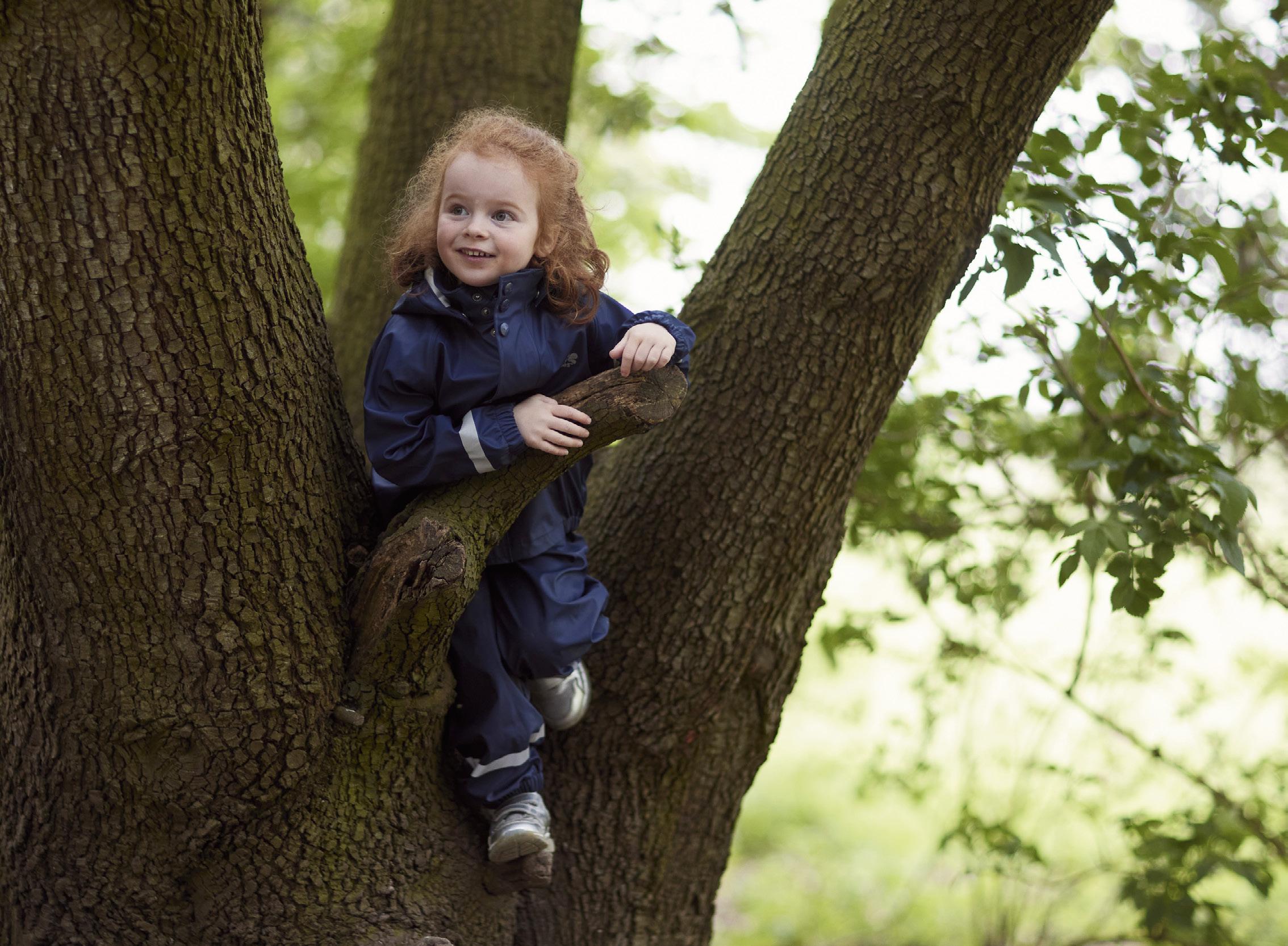


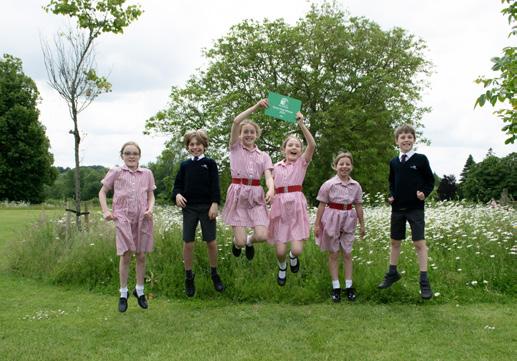



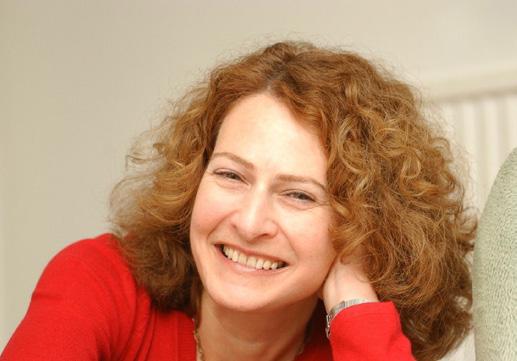
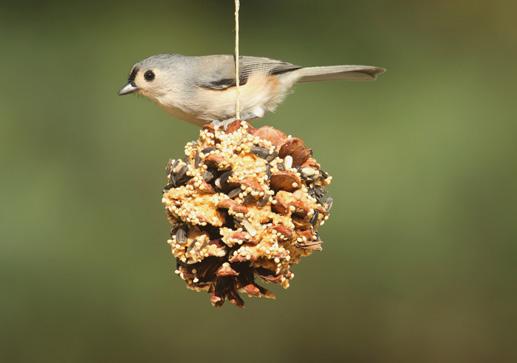
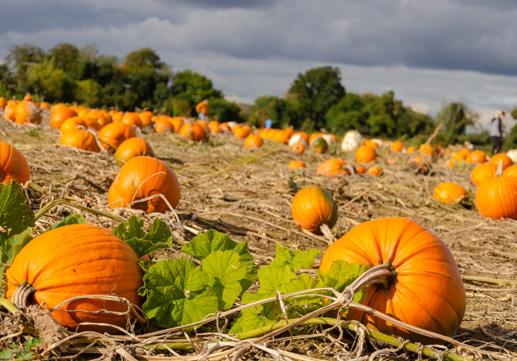

Editor
Sales
Next


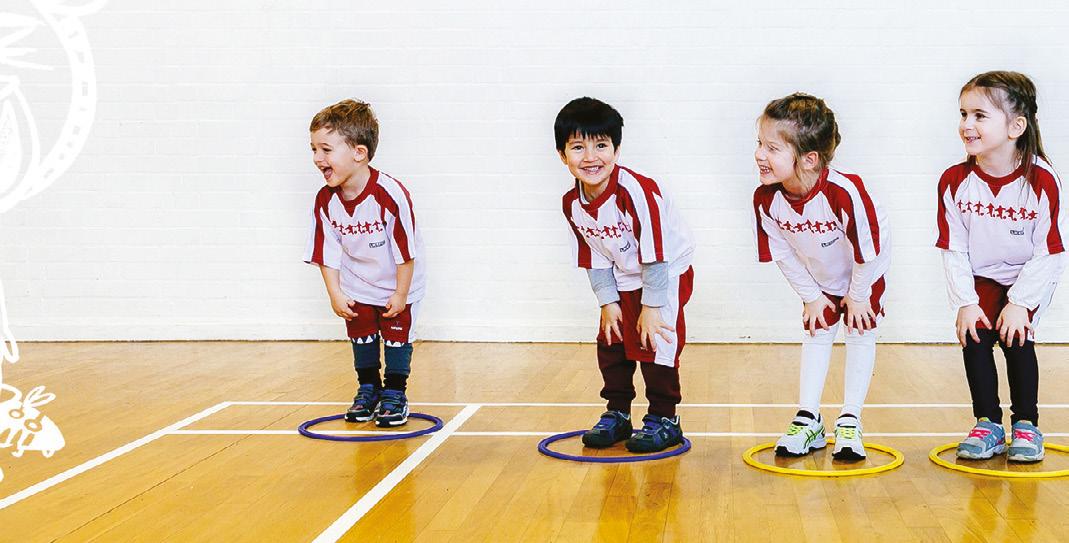
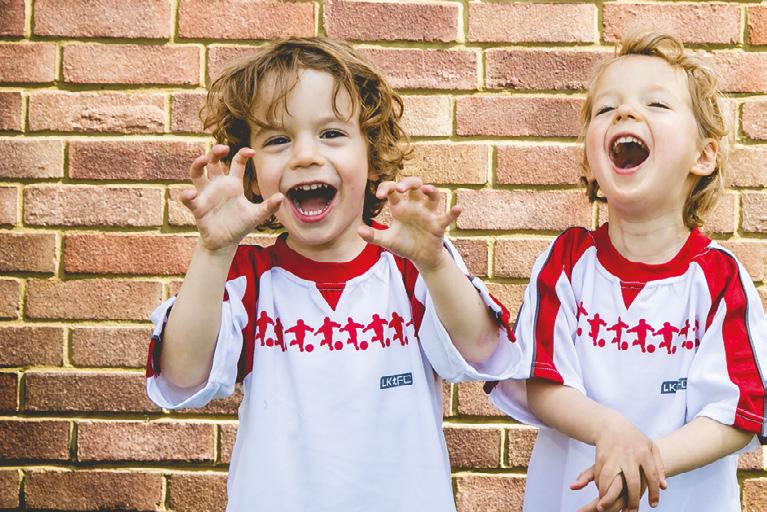
BOOK YOUR TICKETS NOW!

English National Ballet bring the festive classic Nutcracker to life in a magical, brand-new production from 28 to 30 November at Mayflower Theatre, Southampton. Join Clara on a fantastical adventure where anything is possible and embark on a journey full of colour and wonder, with over 100 dancers and musicians.
It’s Christmas Eve in Edwardian London. Clara and her mother are shopping at Drosselmeyer’s Sweets & Delights Emporium where she meets an enchanted Nutcracker doll. They take home liquorice allsorts, nougat, marzipan and of course, sugar plums, to delight their party guests. As music and laughter fill the house, Clara has a magical sugar plum vision, sparking an adventure in which she bravely defends her home from the Rat King before discovering a dazzling ice realm and its Queen. Follow Clara as she travels to the Land of Sweets & Delights where the Sugar Plum Fairy has arranged a grand celebration in her honour.
English National Ballet’s new Nutcracker promises an unforgettable treat for audiences of all ages. Book now at www.ballet.org.uk/nutcracker
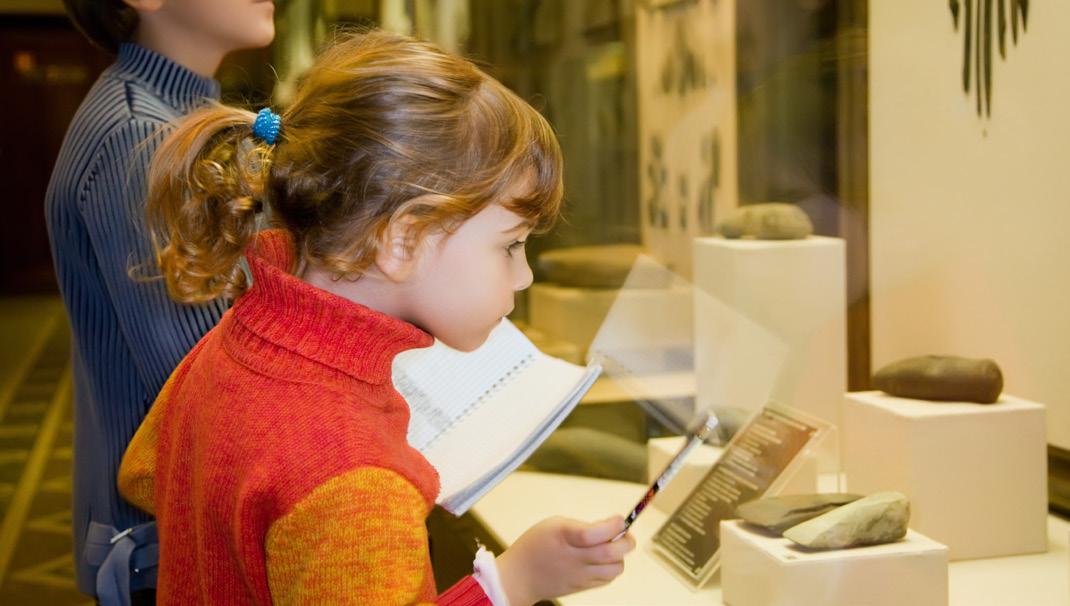
The Family Learning Festival which runs from 5 October to 3 November, is an annual celebration of the joy of learning together as a family.
This festival encourages families to explore, discover and learn new things through a wide range of educational activities and experiences. It emphasises the importance of family bonding through shared learning and provides opportunities for families to engage in creative and enriching activities.
Organisations across the UK, including schools, libraries, museums, children centres and galleries will be staging a range of FREE and low-cost creative family learning events, workshops in your community that your family can participate in.
Visit www.familylearningfestival.com to find a local Family Learning Festival event, and use the interactive map.

As the buzz of the new school year begins, why not enrich your child’s after-school routine with something truly special.
Perform’s dynamic classes are expertly crafted to enhance your child’s confidence, concentration, communication and co-ordination – skills that complement their academic journey. Sessions are packed with drama-based games and activities which allow reserved children to come out of their shell whilst energetic children have the perfect outlet to express themselves.
‘My son is extremely shy, socially anxious and self-conscious but he LOVES Perform. I’m so grateful to the teacher for making my little boy feel so happy and valued!’
‘The teaching team are truly amazing. They have had such a positive impact on my children’s confidence levels.’
This term, ages 4-7 are off to Outer Space on an intergalactic adventure with the Sparkly Spaceman and the Man on the Moon! While ages 7-12 will enjoy a groovy Greek extravaganza in The Hercules Beat, where Hercules gets everyone dancing to stay fit.
Try a FREE class, visit www.perform.org.uk/try to book.
More about Perform’s weekly classes
Confidence building weekly drama, dance and singing classes for 4-7s and 7-12s, designed to boost confidence, communication, concentration and coordination.
NEW class in Hedge End Sept 2024
To book a FREE class in one of the following venues, visit www.perform.org.uk/try, email enquiries@perform.org.uk or call 020 7255 9120.
NEW Hedge End: Underhill Centre, SO30 4AF
Ages 4-7, Tuesday at 4pm & Ages 7-12, Tuesday at 5pm
Chandlers Ford: Chandlers Ford Methodist Church, SO53 2GJ
Ages 4-7, Monday at 4pm & Ages 7-12, Monday at 5pm
Lymington: St Thomas Church Hall, SO41 9ND
Ages 4-7, Monday at 4pm & Ages 7-12, Monday at 5pm
Romsey: United Abbey Reform Church, SO51 8EL Ages 4-7, Tuesday at 4pm & Ages 7-12, Tuesday at 5pm
Southampton: Highfield Church Centre, SO17 1RL Ages 4-7, Wednesday, 4pm & 5pm & Ages 7-12, Wednesday at 6pm
Winchester: Holy Trinity Parish Church, SO23 8DG Ages 4-7, Thursday 4pm & 5pm & Ages 7-12, Thursday at 6pm, Saturday at 2pm
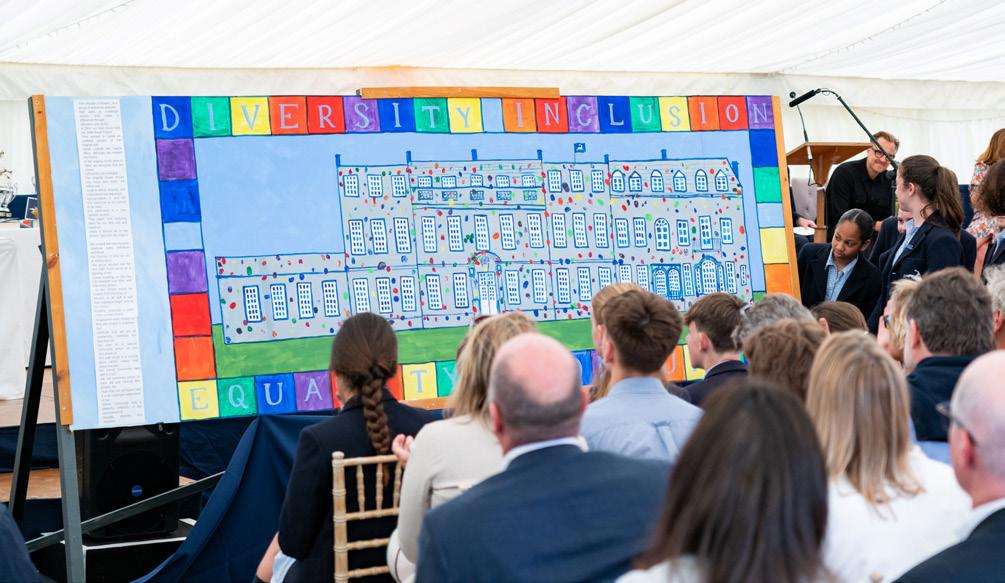
At Walhampton Prep School, inclusivity is more than just a buzzword; it’s a core value that permeates every aspect of their educational approach.
Walhampton believes in celebrating the unique qualities of each child, fostering a sense of belonging where students feel seen, heard and valued. In recognition, Walhampton was chosen as the winner of the Muddy Stilettos ‘Most Inclusive Prep School’ award 2024, highlighting commitment through the delivery of the Inclusion, Diversity, Equity and Action Plan.
Walhampton’s People of Power Group recently unveiled a new mural to celebrate diversity and inclusion and to highlight the progress made at Walhampton from the representation in the original 1958 mural. Each pupil and staff member was invited to add their fingerprint to the mural.
Find out more at www.walhampton.com
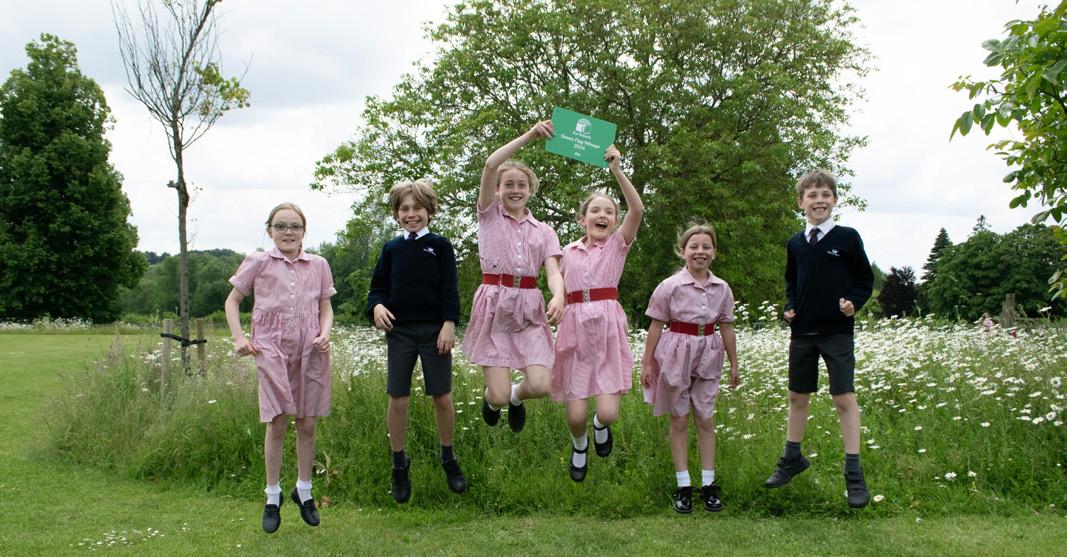
Prince’s Mead has been awarded distinction in its latest EcoSchool Green Flag assessment, recognising its exceptional commitment to environmental sustainability and education.
‘We are thrilled to receive distinction in this internationally recognised award for excellence in environmental action and learning’ said Jemma Chinappen, Green Team lead.
Initiatives that contributed to earning the Green Flag included: Partnering with a School in Uganda: pupils recently sent a donation package of uniform to the children at Central High School, in Kabale, who lack clothing and bedding.
Plant-based food: pupils are offered plant-based food options every day and seasonal vegetables, salad and herbs grown by the schools RHS accredited Gardening Club.
Conservation: pupils learnt about conservation during their weekly outdoor learning sessions. From making fat balls to feed the birds to taking part in the RSPB’s Big Schools Birdwatch.
Find out more at www.princesmeadschool.org.uk
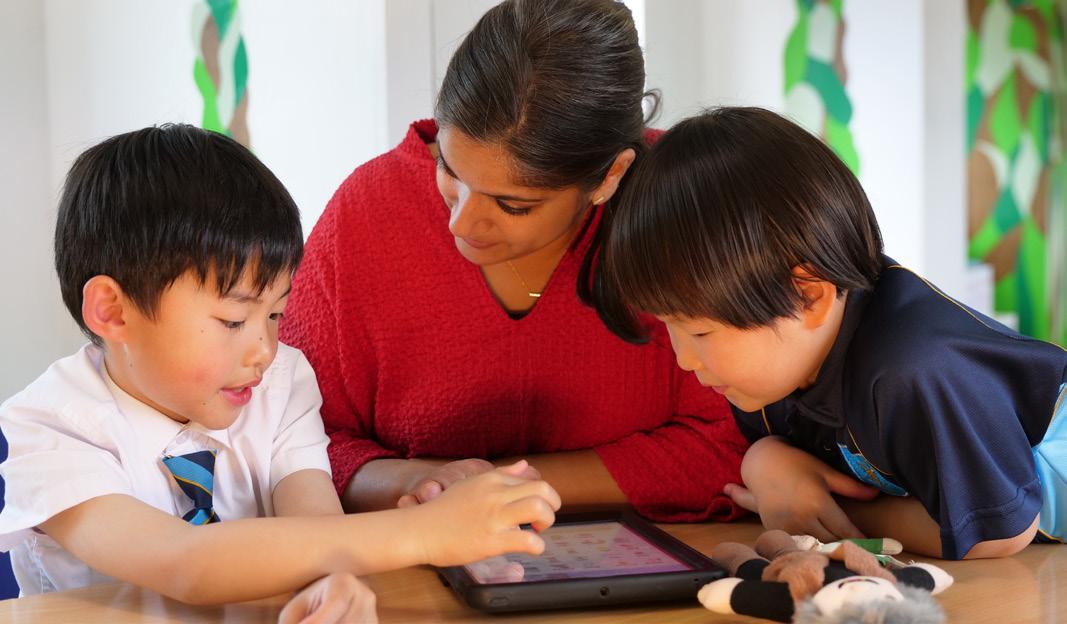
The Gregg Prep School has a friendly and nurturing environment where children are comfortable to be challenged academically and personally. Whether it’s for the task at hand or stretching their knowledge in a familiar area, pupils are given opportunities to see how far they can progress. This is achievable for all pupils from Year R to Year 6, thanks to small class sizes and the additional attention they receive from teachers.
The School believe that inspiring all ability groups and being inclusive is vital so that the same opportunities are given to all. Pupils are encouraged to achieve their best, not only through classroom activities but also through their independent learning, when engaging in co-curricular activities (including visits and residential trips). The evidence they have seen from challenging children is visible when they can present confidently, speak, write and listen with care.
To find out more email: registrar@thegreggschools.org or visit www.thegreggschool.org

Open days may need pre-booking. Please check before visiting.
King Edward VI School
Southampton SO15 5UQ 02380 704561
kes.school
Open Evening Fri 4 Oct
6-8.30pm Call or book online.
Prince’s Mead School
Winchester SO21 1AN 01962 888000
princesmeadschool.org.uk
Open Day Fri 11 Oct 10am Call or book online.
St Swithun’s Winchester SO21 1HA 01962 835792
stswithuns.com
Senior and Sixth Form Sat 5 Oct 9am
Pre-School, Pre-Prep and Prep Open Afternoon Fri 8 Nov 1.30pm
EYFS Afternoon Fri 11 Oct 1.30pm Call or book online.
The Gregg Prep School
Southampton SO17 1EJ 02380 557352 thegreggprep.org
Open Mornings
Wed 25 Sep 9.30-11.30am
Wed 13 Nov 9.30-11.30am
Senior School Activities
Morning Sat 21 Sep
Senior School Open Evening Thu 3 Oct Call or book online.
Walhampton School
Lymington SO41 5ZG 01590 613300
walhampton.com
Open Morning Fri 11 Oct
Call or book online.
To feature your school in our next issue, call Rebecca on 07789 882467.
By Usha Patel
Back in 2007, a mum called Sarah told me of an incident involving her then 8-year-old son, Albi. Sarah had fainted in the bathroom of their small flat. As she was coming round, she called out for her son. He said: ‘Yes, I saw you.’ Sarah reported that Albi carried on playing without concern. Sarah was visibly upset when she recalled her son’s behaviour.
Why had Sarah’s child not been concerned about her? What was the reason Albi appeared aloof? This was not due to a lack of empathy (as his mother had assumed) but an inability to understand the behaviours of others. Albi needed something called ‘theory of mind.’
What is the theory of mind?
A theory of mind is crucial for success in everyday social interactions, understanding others and their possible mental states (happy, sad, confused, etc.). Having theory of mind shows you acknowledge that others have different beliefs, desires, intentions and emotions from your own.
The Sally-Anne Story
Children can be tested on their theory of mind with a classic test called the Sally-Anne Story, where children watch the story acted out (by a therapist) using two dolls named Sally and Anne.
‘Sally places her marble in a basket, covers the basket and leaves the room. After Sally has departed, Anne moves the marble from the basket and places it in the box.’
The child is then asked where Sally will look for the marble when she comes back? To ‘pass’ this task, the child being tested will say that Sally will look in the basket. After all, Sally would not know Anne moved the marble and would assume it was where she had left it: in the basket. The child being tested needs to show that she has understood from Sally’s perspective and taken Sally’s most probable thoughts into consideration.
Never miss an issue!
Sign up at familiesmag.co.uk/go

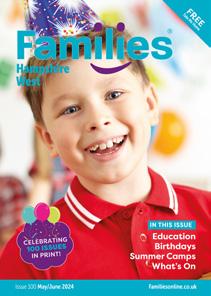

Children must first develop their self-awareness. This enables them to be socially aware. Seeing other people’s perspectives provides a starting point for thinking like that other person.
Illustrated storybooks can help children see things from another’s perspective: ask them how the characters are feeling based on the illustrations. The child might relate that to how they feel too. The more language that is used, the greater the chance of the child learning the vocabulary of emotions and conveying feelings.

Here are the stages of theory of mind in a young child:
Perspective-taking
A child recognises that although they know a toy is hidden in a box, another person who was absent during the hiding will not be aware of its location.
Understanding false beliefs
If a friend sees you place a sweet in your pocket but you secretly move it to your bag when they’re not looking, a child with theory of mind realises the friend will mistakenly believe the sweet is still in your pocket.
Empathy
If a friend is crying because they dropped their ice cream, a child with theory of mind will comprehend that the friend is upset, even if that child still has their own ice cream.
Deception
If a child decides to mislead their friend by pointing in the wrong direction when asked about the location of a hidden object, a child with theory of mind will understand that the friend does not know the true location.
Understanding others’ ignorance
A child understands that they learned something new at school and also realises that their parent doesn’t know this information yet because they weren’t at school.
Predicting behaviour
A child expects a friend to look for a missing toy in the last place they left it, demonstrating an understanding of the friend’s beliefs and intentions.
Usha Patel is a neurocognitive therapist with over eighteen years of experience. Visit www.ravivpracticelondon.co.uk to find out more.

Here are some great books which can help interested parents:
Theory of mind: How Children Understand Others’ Thoughts and Feelings by Martin J. Doherty
Talkabout Theory of Mind: Teaching Theory of Mind to Improve Social Skills by Katherine Wareham and Alex Kelly
Teaching Theory of Mind by Kirstina Ordetx.
Also try Raviv Practice’s online package of Foundation Social Skills. These are bite-sized weekly interventions with a qualified coach.
By Melanie Sanderson
Choosing a secondary school is one of the biggest decisions you’ll ever make for your child. Very likely, your two priorities are whether your child will reach their academic potential and whether they will be happy there. Here are my tips on what to look for.
Hot-house or greenhouse?
Is the school educationally aspirational and how does this manifest? Look for relaxed and respectful teacher-pupil relations. They are key to successful learning. Is the library well-stocked and busy? Teacher recruitment and retention is challenging all schools. Ask pupils how often they have cover teachers.
Are pupils regularly assessed? Performance measures such as Progress 8 (see www.gov.uk) are good indicators of how a school adds value as they measure academic attainment rates over time. Are there programmes to stretch the more academic children? What about those with special educational needs and disabilities?
Breadth of curriculum
The best state schools offer and value a broad liberal arts education beyond the standard curriculum. For instance, Bohunt School in Hampshire ‘blew the socks off’ the Good Schools Guide with immersion classes in Mandarin. Some of the best state schools invest in top notch sports facilities and coaching, others have outstanding creative or performing arts spaces. Pick a school that suits your child’s strengths. Check out school notice boards and the school’s social media for co-curricular activities and trips the children are doing outside the classroom too.
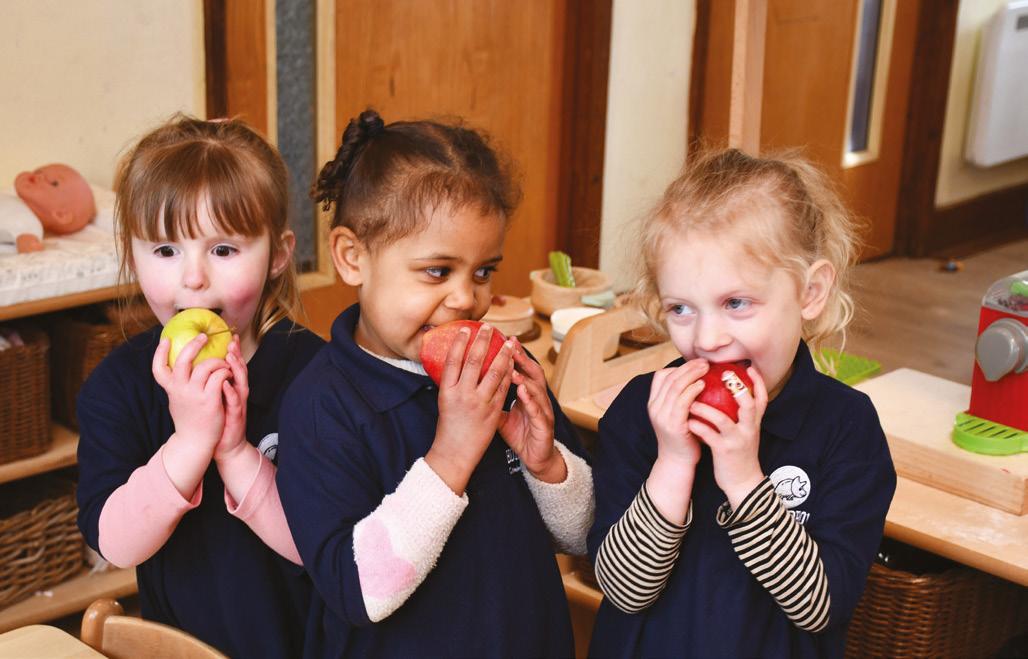










Good schools have clear systems. Every child is known; nobody slips through the net. Ask if reports and open evenings include pastoral updates. Does the school’s praise/discipline system flex to meet individual needs and align with your family values? Ask pupils what they do at break and lunch. Good schools include spaces for children to seek quiet reflection when needed.
Good schools also communicate well with parents. The tone of school newsletters and social media feeds can tell you a lot, while an active PTA is a sign of an engaged parent community. If you can, pass by the school at home time and observe pupil behaviour as they leave the site. Another top tip is to talk with pupils higher up the school. Would you be happy for your children to turn out like them?
Melanie Sanderson is Managing Editor of The Good Schools Guide (www.goodschoolsguide.co.uk), which contains frank, impartial reviews of schools. Its writers visit thousands of schools annually, speaking to Heads, teachers, pupils and parents.







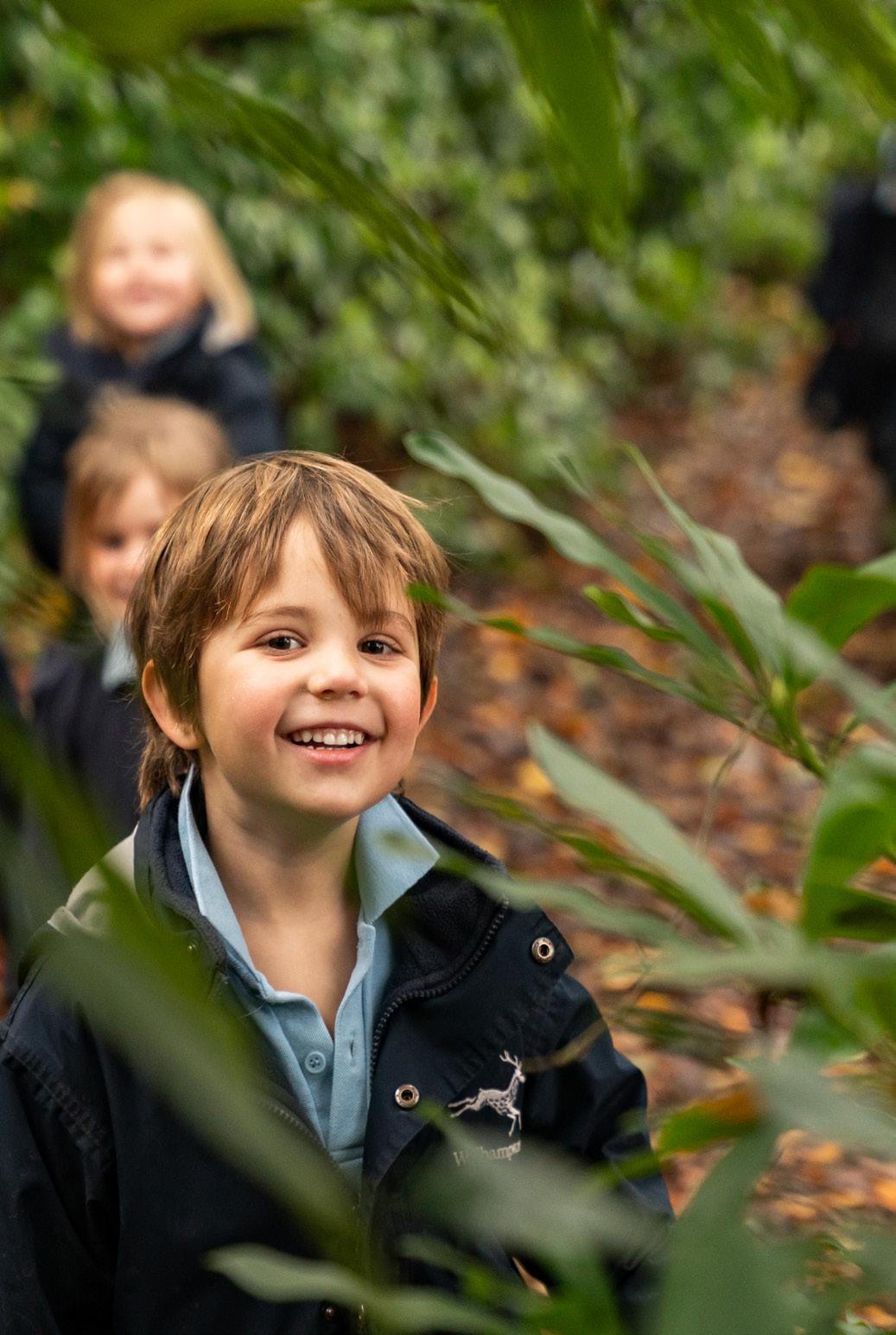

By Zuzu Jordan
For children, learning how to spell isn’t just about passing school tests but being able to write words correctly in their extended writing. As adults, spelling is essential for effective writing, both in the professional world and on social media.
There are many tools that can help, such as auto correct, predictive text and even AI (Artificial Intelligence). However, children do not have ready access to these at school where they are expected to spell independently. Learning is key.
Here are some techniques:
Ensure that they know all the 40+ phonemes
Some children need repetition of the phonics taught in early years. Children will be taught the 26 letters of the alphabet, 44 different sounds called phonemes and the corresponding graphemes (the written symbols that represent a sound). Making sure they are secure in their phonics understanding can make a difference in their ability to spell words that follow patterns and rules.
Learn the exceptions to the rules
The many words that do not follow patterns can be confusing. Knowing what these words are and discussing how they are the ‘tricky’ words brings them to your child’s attention so they are mindful of them when writing. Also choose English over American spellings.
Rhyming games can really help
Children find similarities between words and this expands the number of words they can spell. For example, if they can spell ‘rain’ then they can spell ‘gain.’
Looking for words within words
This is a great way of breaking up larger words eg the word ‘independent’ has the words ‘in,’ ‘pen,’ ‘dependent,’ ‘dent.’ Equally, most words can be broken into syllables and each syllable usually has a vowel (or sometimes the letter ‘y’).
Seeing the shape of the word helps visual learners
For example, the word ‘tall’ has one tall letter and a short letter followed by two tall letters.
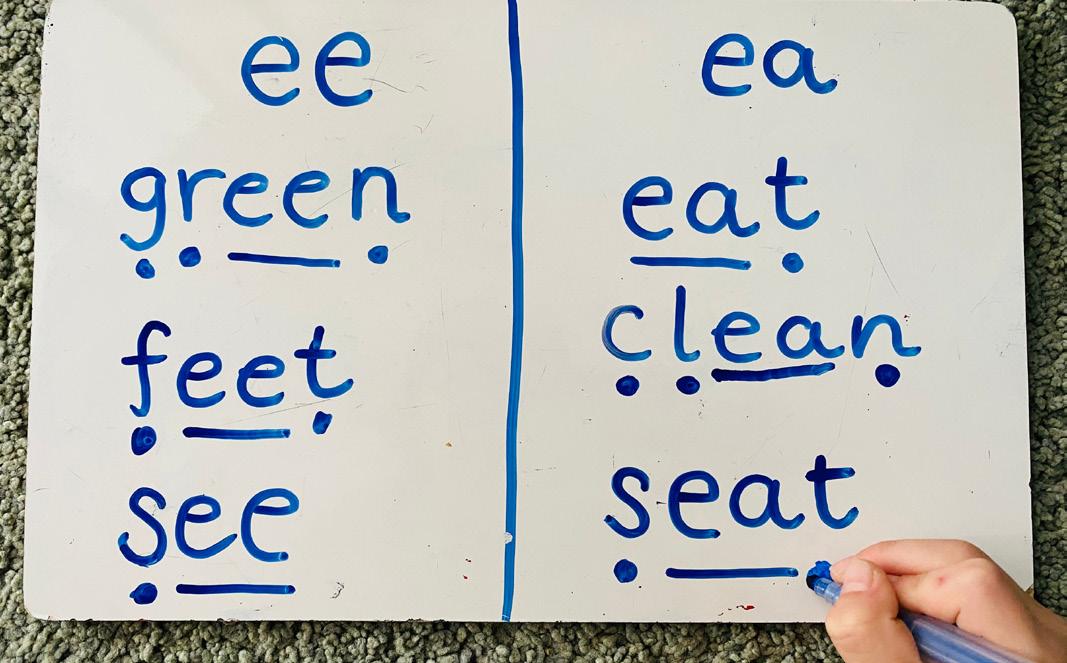
Mnemonics is like making up a story to help spell a word
For the word ‘because’ use the mnemonic ‘big elephants can always upset small elephants.’
The traditional method of ‘look, say, cover, write and check’ works for some children but comes with a warning
Not all children respond to this method and the words don’t always enter their long-term memory. Practising writing the word out helps your child become familiar with the shape of the word. Rainbow spelling is another visual way of learning spellings: maybe use one colour for a specific sound and different colours for the other letters.
Using technology and apps
The app Squeebles Spelling Test starts with a list from the national curriculum and you can upload your own words. Children can then practise their spellings independently.
Use different materials to practise writing the words
Like with paint or foam or in sand. Scrabble-like tiles can be bought from most hobby shops and are great for kinaesthetic learners as they can physically move the letters into the correct order. Equally, playing games like Scrabble and Hangman is also helpful.
Ultimately a multi-faceted approach will bring the best results when supporting your child’s spelling journey.
Zuzu Jordan is a Mastery for Maths specialist who has taught primary aged children for sixteen years and is interested in early years and home learning. For free homework and home learning resources, find her on Instagram at edumate_uk



Rhyming is a powerful tool to raise phonics awareness and help kids remember tricky facts. For example, ‘wakey wakey rise and shine, 7 x 7 is 49’.
Mnemonics is another memory strategy that can be used in all subjects. It turns information into songs, acronyms, rhymes and other forms.
The spelling of ‘necessary’ can be remembered with this mnemonic: Never Eat Cake, Eat Salmon Sandwiches And Remain Young. A quick internet search shows many useful mnemonics to help your child in lots of subjects.
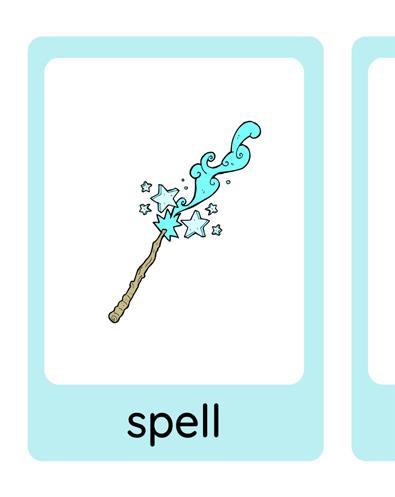

By Tanith Carey
To a young child, money is a magical commodity which allows grown-ups to go into shops and take anything they want. And it’s not just about understanding where money comes from and how it’s used: in an increasingly cashless society, money is even more of an abstract concept for kids to grasp.
In the days of coins and notes, children could see that money was something tangible, used for goods and services; and that it could run out. Now that we can just tap and go, kids don’t even see money being exchanged. So, it’s even harder for them to see that it’s not an unlimited resource. This requires parents to put a little more thought into helping kids understand how finances work. After all, managing money is a lifelong skill, bringing a range of key benefits.
As well as boosting their maths, money teaches kids how to control their impulses, develop patience, delay gratification; and ultimately spend wisely throughout life. Indeed, according to research by Cambridge University, attitudes to money are formed by around the age of 7.
Practical life lessons
Kids first grasp what money represents around the age of 6. Start by paying them their first pocket money in coins to make it tangible. Give them a see-through jar so they can see it disappear when they spend it. When you’re out and about, try to use cash as well as cards. Each time you do use your card, explain it’s the same as having the same amount taken out of your ‘jar,’ aka your bank account. As they get older, start sharing your own spending decisions too.

Pay pocket money as in the real world: a fixed allowance on the same day each week, just like a wage and it’s their responsibility as to how to spend it. This teaches the value of money and that it’s not an unlimited resource.
Help them track their money on screen: if you give them a prepaid debit card, as many parents do, show them their balance on a family tablet. Watch the numbers go up and down together.
Let them earn: come up with some small jobs around your home and set a price for them. When you transfer their pay, let them see it pop up on screen. This will show how work earns money and how money gets transferred.
Play board games: Money-based board games like Monopoly and Pay Day still use old-fashioned play bank notes and can also introduce concepts like debt, mortgages, taxes and saving.

Talk about it. For example, when you go to buy an ice-cream with them, chat through the different prices for each item. Explain how the higher the cost, the more money will go out of your bank account. When you go to pay, rather than just tap, show your child the amount displayed on the card reader so they link what you’re buying to the money it costs.
Explain that if you spent all your money on ice-creams, you would have less to spend on other more important items you all need, namely food, clothes and travel.
Pocket money is one of the seventy five real world scenarios tackled in the book What’s My Tween Thinking? Practical Child Psychology for Modern Parent co-authored by Tanith Carey with Dr Angharad Rudkin, published by DK books and available now from www.bookshop.org
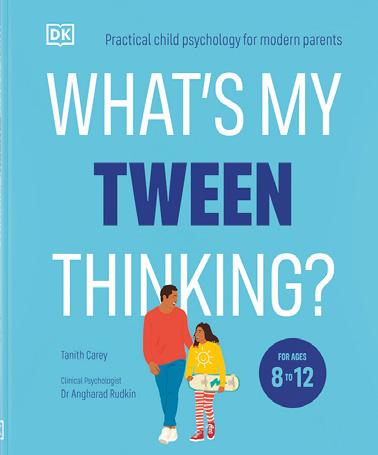

Share your spending decisions Parents often don’t share with children how much money they have or how they make financial decisions. So kids may believe you have an unlimited amount and one day they’ll be the same.
To help them think responsibly, calmly share some of your own money management decisions. When you’re out shopping, chat through your choices and how you compare prices. You might also show how your purchases affect your bank balance, so they learn basic cause-and-effect.
Talk about the difference between a ‘need’ and a ‘want’ In a tap-and-go society, it’s easier than ever to use a card to buy an item without thinking. That’s why it’s important to introduce some ‘friction’ to slow down the process. When you buy something, talk about the difference between a ‘need’ and a ‘want.’ Explain that ‘needs’ are everything you require to survive, like food, shelter. ‘Wants’ are complementary add-ons which are nice to have but you can live without them.
By Erin Miller
At this year’s Hay Festival (the UK’s most prestigious literary event), children’s literature was a hot topic for discussion. Among those commenting were respected and prolific children’s authors, including Antony Horowitz CBE, author of the Alex Rider series, who observed the diminishing quality of children’s literature over the years, stating that ‘proper stories’ are being superseded by ‘silly books.’
There is no doubt that the classics are proper stories, characterised by their originality, complexity and the fact that they have stood the test of time. However, also appearing at the Hay Festival, the current Children’s Laureate, Joseph Coelho, claimed that today’s children would need a dictionary to read classics such as The Wind in the Willows and Treasure Island.
So, if classics are challenging, with sometimes outdated ideas (for example, around gender roles) is it desirable or necessary to get children reading them? My answer is a firm ‘yes.’
As an English teacher with over a decade of experience, I’ve seen hundreds of children connecting deeply with classic texts. I’ve also witnessed children making excellent progress in their reading skills when faced with books that might seem ‘too hard.’
Furthermore, having taught in the Far East, the Middle East and the UK, I know that many of the classics are enjoyed by children across the globe. Universal themes such as friendship touch everyone and are dealt with in the most insightful, exciting and even tragic ways in classic children’s literature.
It is recognised that reading for twenty minutes a day builds vocabulary and academic progress in all subjects. However,


this does actually depend on what your child is reading. With both complexity of plot and language, the classics certainly will ensure vocabulary expansion and provide new or challenging ideas.
In addition, a broad knowledge of classic texts will equip your child with ‘background knowledge,’ which is an essential reading skill that has been proven to compensate for a weaker reading ability.
With AI generative platforms such a ChatGPT, there is a risk that today’s children could struggle with originality and creativity.
By encouraging your child to experience the classics, they will be armed with the stories that built today’s world. They will be exposed to a wide range of ideas to interpret and fuel their ideas in their own writing.
Erin Miller is a teacher with a keen interest in how research can be used in the classroom to improve learning.
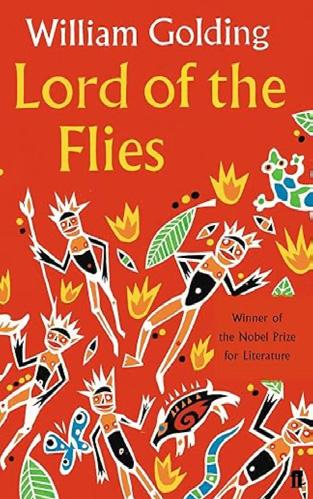
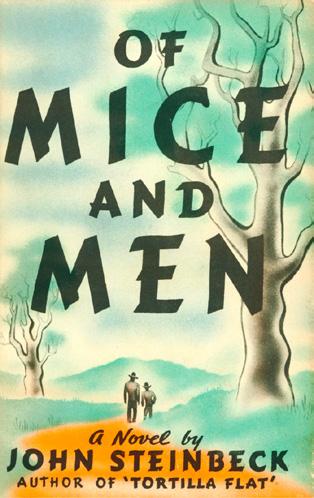
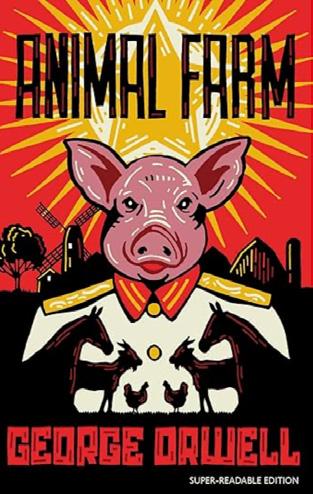
In the primary years, consider the Greek myths. It’s highly likely that your child will encounter some of these at school but translations such as Geraldine McCaughrean’s retelling of The Odyssey will give them the opportunity to read the full adventures. Roger Lancelyn Green’s retelling of King Arthur is also a good version to introduce to younger readers.
It is a universally acknowledged fact that a love of reading drops off in the secondary years. Fortunately, there is a wealth of quality YA fiction out there. But which classics should your secondary-aged child start with? Some classics have dropped off the curriculum, such as Golding’s Lord of the Flies and Steinbeck’s Of Mice and Men. I would highly recommend these books, as their exploration of power, friendship and society will have some resonance with young people finding their way in the world. Orwell’s Animal Farm is another book which really helps to develop young people’s understanding of politics and power, with memorable characters in an unforgettable allegory.
The Aliens Love Underpants series has always been a firm favourite with preschoolers, so here at Families Magazine we were very excited to hear that after eight years, there is a new Underpants story publishing this month! Rachel Bailey talks to author Claire Freedman about her new book Dragons Love Underpants and meeting MC Grammar!
Follow on X @clairefreedman www.clairefreedman.co.uk
Is it fair to say you didn’t plan your writing career? What advice would you give to parents/children who don’t grow up with a clear idea of what they want to do once they leave school?
You are absolutely right! I didn’t plan a career in writing at all. It happened entirely by accident after I joined an evening writing class about 30 years ago. I’d always loved writing and reading and our teacher was so enthusiastic about writing, for children in particular, I was immediately hooked. I knew this was what I really wanted to do. I haven’t looked back since.
Personally, I didn’t have a very clear idea of what I wanted to do after I left school. I had a number of different jobs over the years, which, looking back on, I can see weren’t creative enough for me, even though I enjoyed them. I do think that there is a lot of pressure on young people to decide on their career so early on in life.
It’s wonderful if you know exactly what you want to do, but I think just getting out and working can also help you decide what you like and don’t like about a job. It’s all good experience, and who knows what exciting opportunities might present themselves? It has also made me appreciate just how fortunate I am to have discovered what suits me and gives me the greatest job and personal satisfaction.
I hear MC Grammar is doing a rap read –have you met him? How important do you think it is to keep looking for different ways to encourage children as readers?
I’ve not met MC Grammar but would like to. His presentation of books in rap is such a great way to attract young readers to enjoy books, especially when they might consider reading a chore. Picture books should be fun, engaging
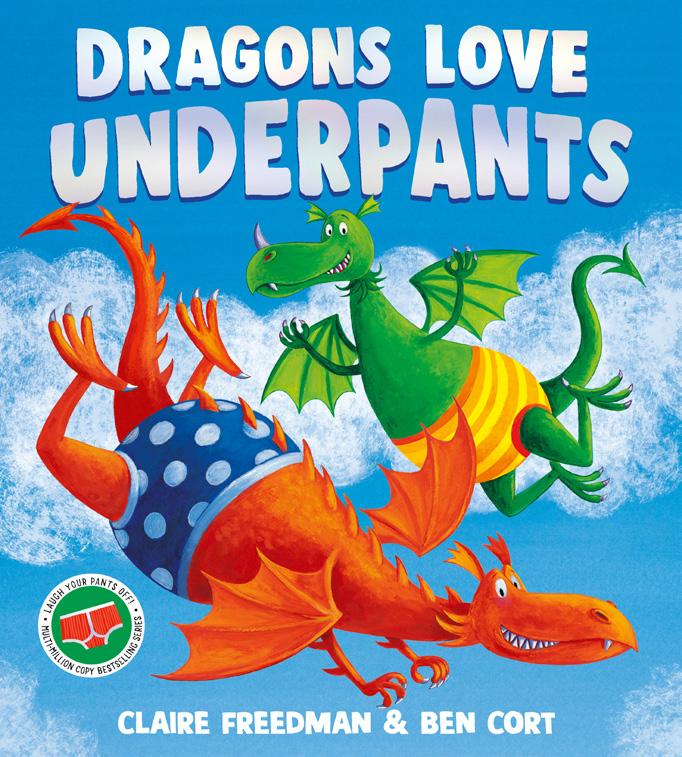
and meaningful for children. Trends seem to change more quickly than ever and if that means thinking outside the box to encourage reading, well that has to be a good thing.
It would be sad for any child to miss out on the joy of reading because it appears boring. Picture books are so essential for new and reluctant readers – the pictures truly tell the story - and even if the child struggles with some of the words, the illustrations help the story along and make the reading experience more fun and accessible. Presentation is so important and fortunately there are always new, exciting ways to champion the love of reading.
You write the books and Ben Cort illustrates them. What’s your working relationship like? Do you ever bounce ideas off each other?
We have a really good working relationship – which is important as we have spent a lot of time together over the years, visiting festivals, book signings and events etc.
However, we don’t generally contribute much to each other’s work. I write and
For your chance to win a copy, all you have to do is answer the question below and email your answer to editor@familieshampshirewest.co.uk
What’s the name of Claire’s latest book?
A - Aliens Love Underpants
B - Dinosaurs Love Underpants
C - Dragons Love Underpants
The closing date for entries is 1 November 2024
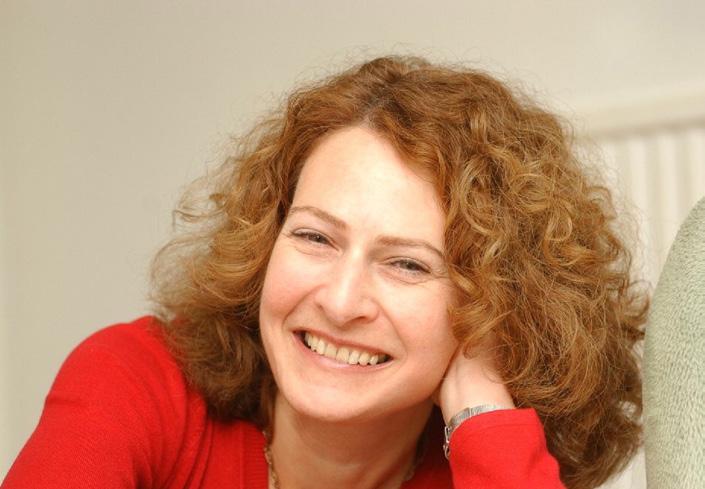
Ben illustrates, although of course we might comment on each other’s work and maybe make suggestions. I think that works well for both of us.
Do you have a favourite Underpants book or other book you have written? As fantastic as the underpants books are, they are just a small part of your portfolio! Are you surprised by how popular they have become?
My favourite Underpants book, hands down, is the first one in the series - Aliens Love Underpants! I was totally amazed by its success. I initially wrote the book as a one-off, but I’ve been surprised that eight books later, the series is still going strong. I’m really excited about Dragons Love Underpants and hope it is just as successful.
Aside from underpants books, I’ve had around 100 other picture books published. Everything from laugh-out-loud humour to soft and sleepy bedtime stories. My alltime favourite would be Oliver and Patch, a story about a lonely little boy who’s moved to the city, and how he finds a little dog called Patch – just as lost as him –and a new friend. It’s beautifully illustrated by Kate Hindley.
Would you ever consider writing books for older children or do you love the freedom to create the zanier characters that perhaps writing picture books offers?
I have considered writing for older children and wouldn’t rule it out, but I feel picture books suit my style of writing and I enjoy crafting them so much. Never say never!
Dragons Love Underpants publishes on 26 September priced £7.99.
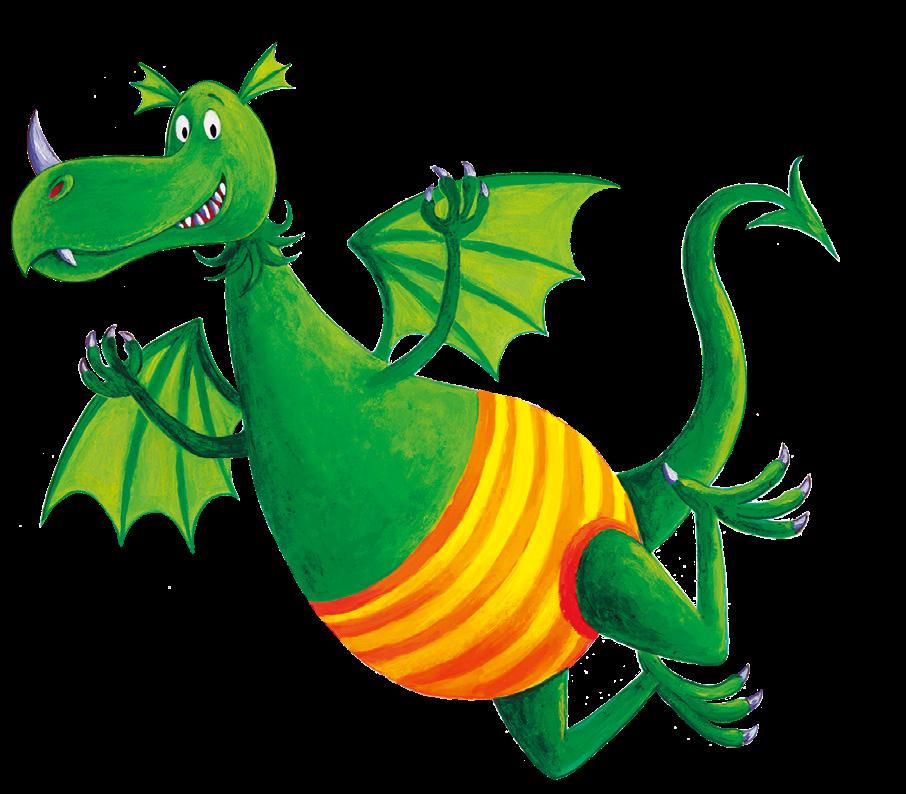

As the autumn approaches and the nights draw in once more, it can be a challenge to get outside. But fear not! The Outdoor Guide (www.theoutdoorguide.co.uk) is here with some great suggestions for outdoor activities for families to enjoy.

It’s great to explore the outdoors using all of your senses. Imagine you have ears as large as an elephant - how many sounds can you hear? Imagine you have long tentacle arms like an octopus - how many different textures can you touch? Imagine you have the nose of a dog - how many different smells are in the air? Imagine you have the eyes of a hawkwhat can you see?

A treasure is in the eye of the beholder and the natural world has many treasures just waiting to be found. Wander out and see how many you can find. Perhaps look for treasures that spell out the word NATURE - maybe you’ll find a nut, an acorn, a twig…


In the autumn months, the hedgerows and woodlands are abundant with treats. Perhaps you’ll find some blackberries, sweet chestnuts or sloes to take home and make some tasty treats with. Remember not to take all of them from the tree or bush as the local wildlife will want to enjoy some too!

All too often we’re moving too quickly, focusing on our destination rather than where we are. It’s only when we really slow down that we start to notice everything that is happening around us. What’s the slowest animal you can think of? A sloth perhaps or a tortoise? Imagine you’re one of them - moving slowly and just noticing what is happening around you.

Sometimes we’re all too busy looking at the big picture to notice the small details within it. Grab yourself a magnifying glass and go explore the little things that are all around you in the natural world. What’s the smallest thing that you can find?

Maps offer a birds’ eye view of an area, showing all the detail of what’s there. Can you create your own map of the area where you live? What are the things you can see as you walk along the path? Perhaps you could include trees, hedges, ponds, houses and road turnings.
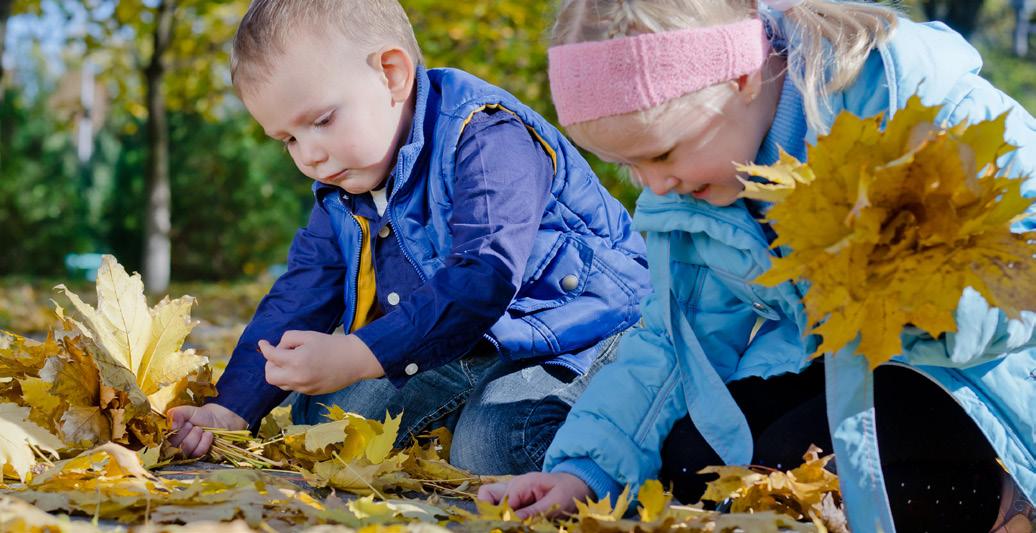
As the trees shed their leaves for another year, collect those you can find that have already fallen. Clearing a space on the ground as your canvas, use leaves and other objects you might have found to make your own works of art for others to enjoy.
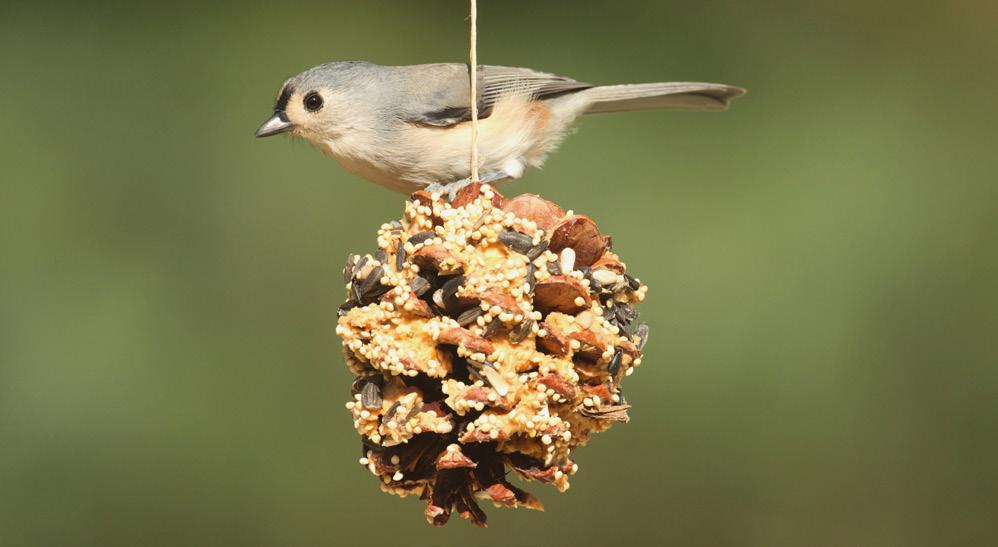
As we approach the cooler months, your local garden birds will be grateful for extra food that you can leave out for them. You can make your own bird feeders using things you find in the natural world. Open pine cones are perfect for this. Mix some seeds, oats, dried fruit or perhaps some grated cheese into some suet, lard or vegetable shortening and then smear it over the pine cone and hang somewhere the birds can easily reach it.
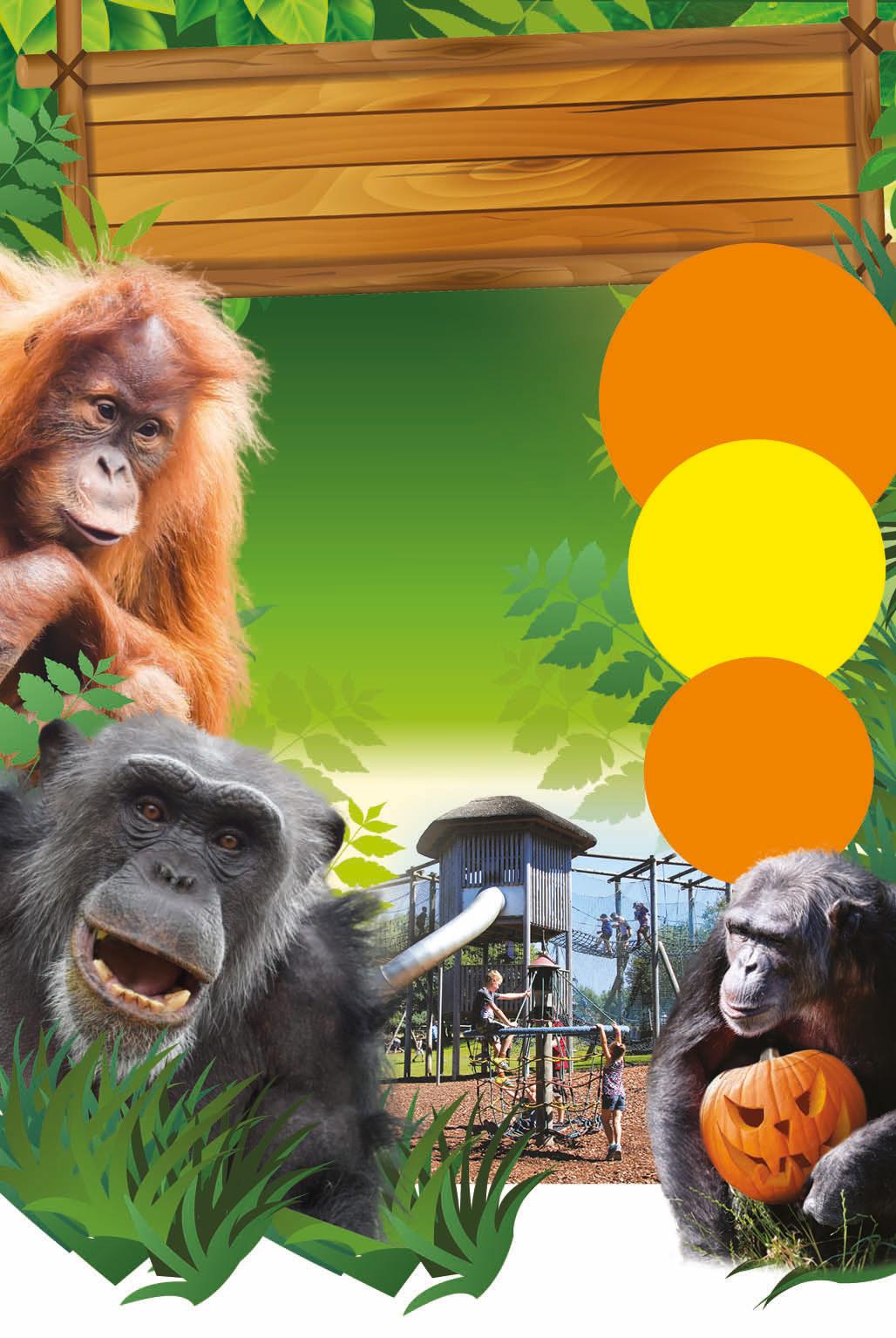

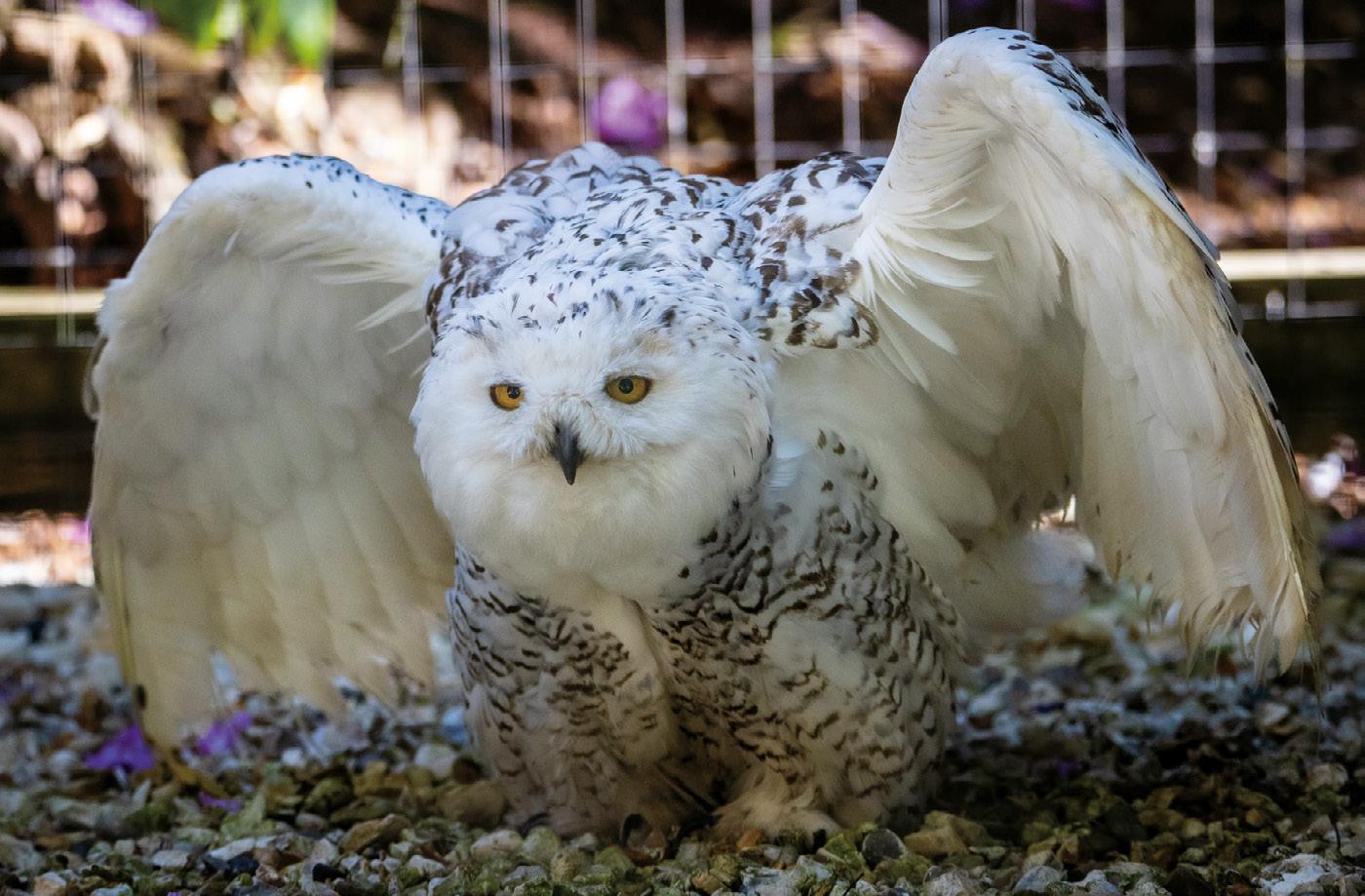


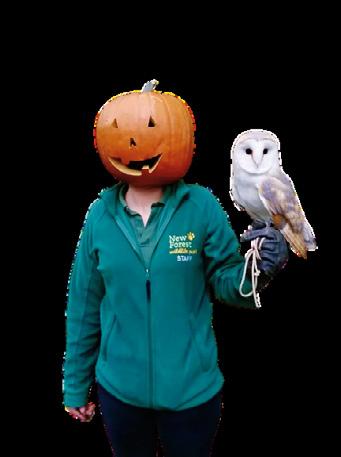

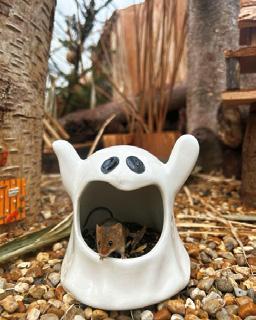
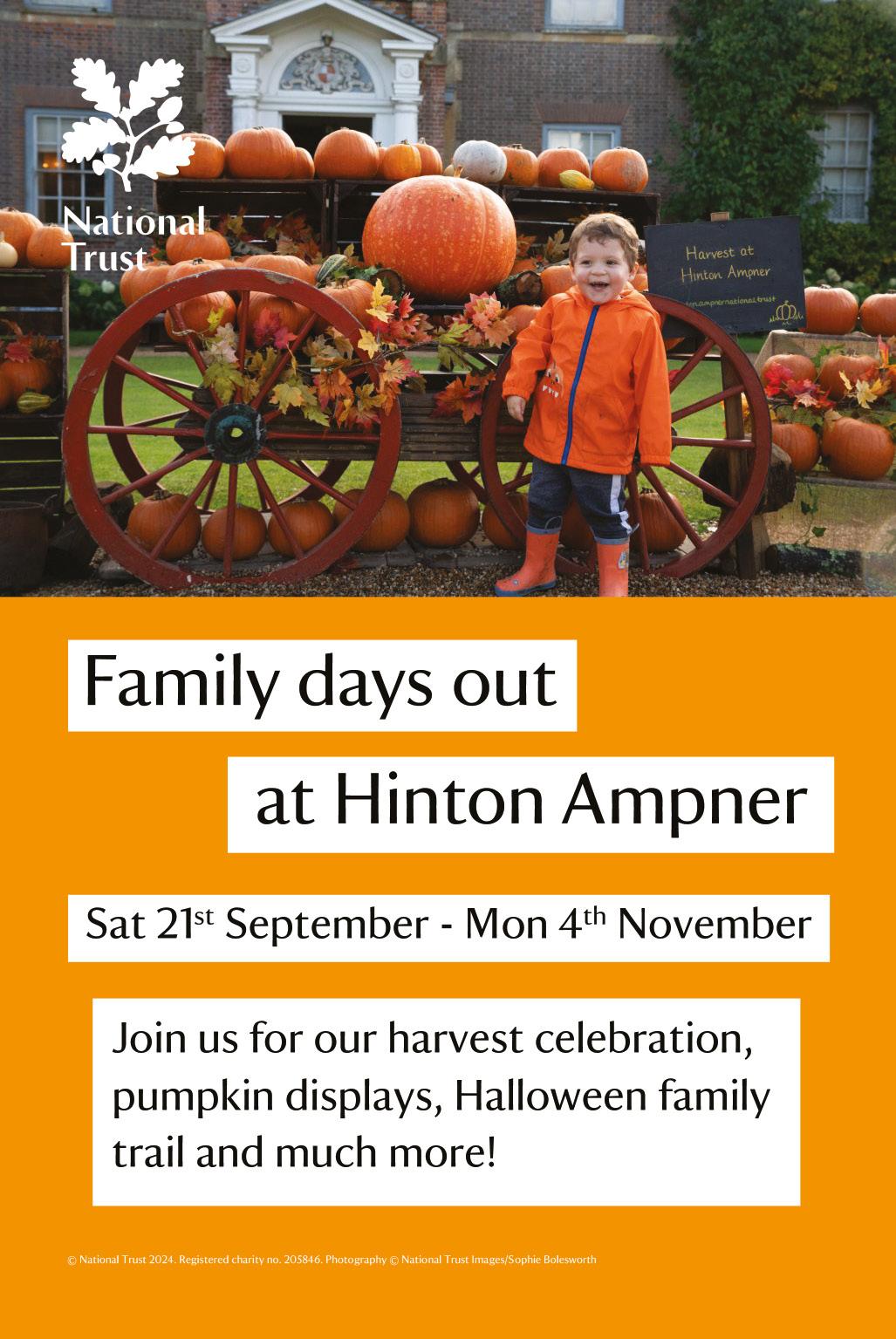
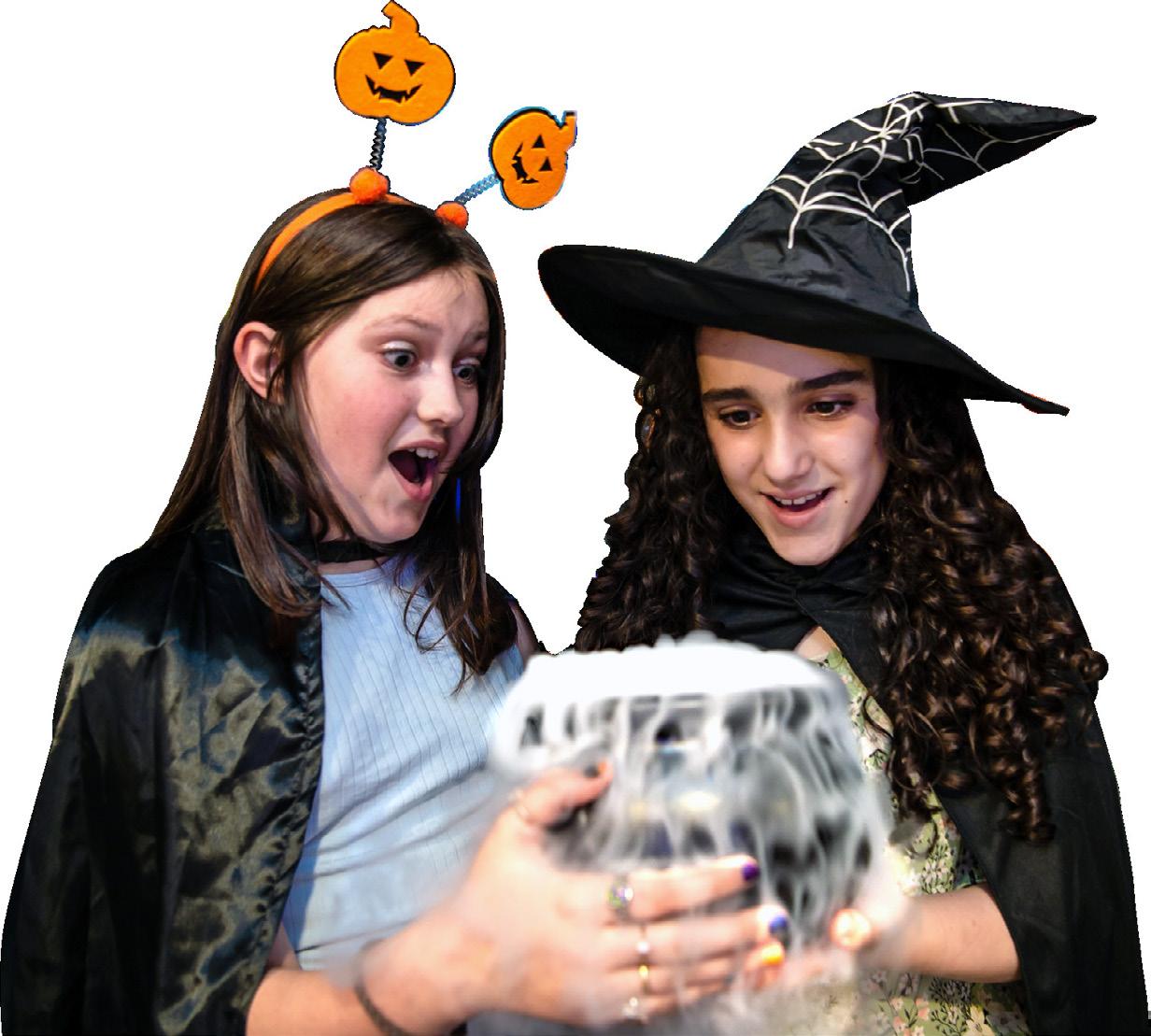

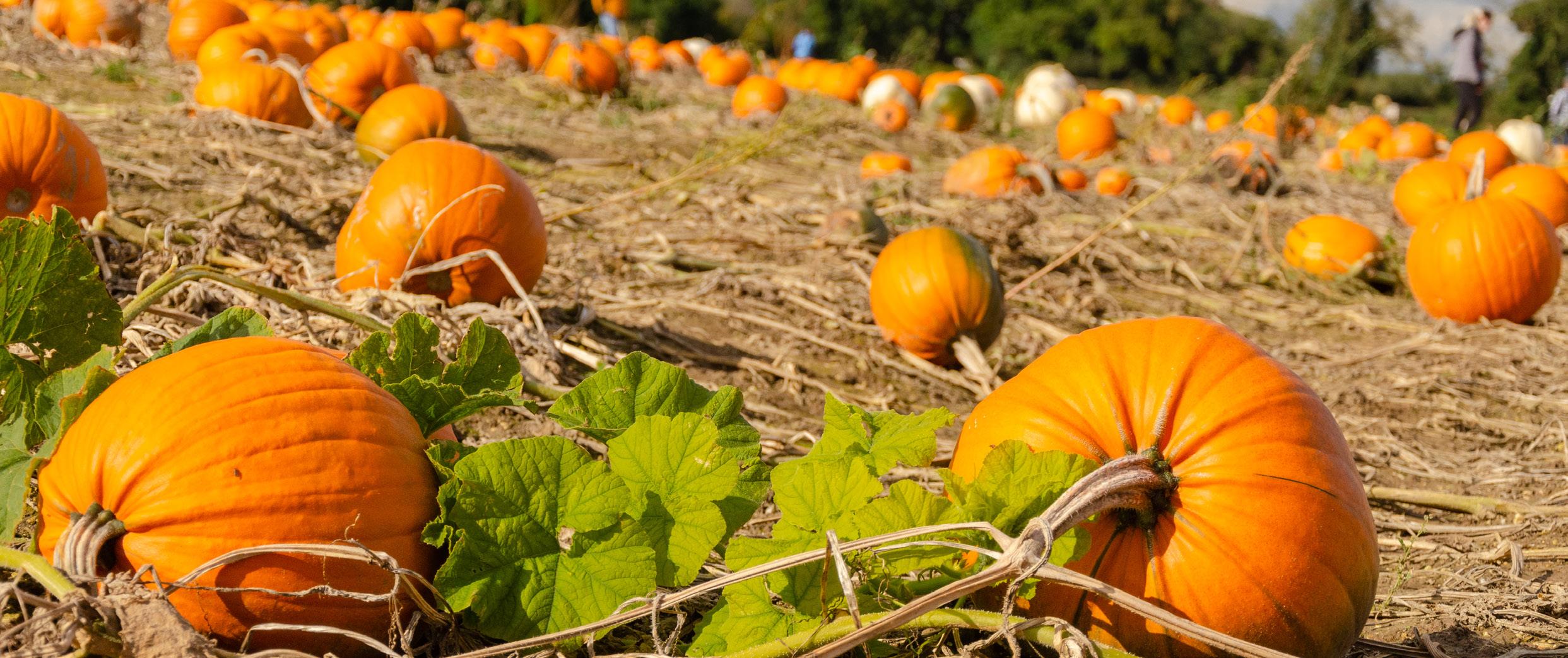
All listings correct at the time of going to print. Please check with the venue before visiting to ensure events are still going ahead and the venues are open.
Ongoing
Treasure Trails across Hampshire
A self-guided spy mission walking trail or treasure hunt inspired walk. Trails are 2 to 2½ miles and take approximately two hours. treasuretrails.co.uk
Ongoing
‘50 Things’ Activities at the National Trust
Why not try some of the ‘50 things to do before you’re 11¾’ challenges? There’s something for every young explorer to do. nationaltrust.org.uk
Ongoing
Gruffalo Party Trail at Alice Holt Forest, Farnham, GU10 4LS
Interactive family trail features partythemed activities and games and fun facts. 9am-4pm. Ages 3-9. forestryengland.uk/alice-holtforest/gruffalo-party-trail-aliceholt-forest
Until Sun 29 Sep
John Burningham’s Bedtime Stories: Exhibition and Activity Trail at Mottisfont, SO51 0LP
A family-friendly exhibition and activity trail celebrating awardwinning author and illustrator John Burningham. Discover over 60 original illustrations, comfy reading zones and an energetic activity trail with games and challenges to complete. £3 per trail. 10am-5pm. nationaltrust.org.uk/mottisfont
Until Sun 29 Sep
Disney’s Aladdin at Mayflower Theatre Southampton, SO15 1GE
This exuberant production, based on the 1992 animated film is filled with unforgettable magic, comedy, breath-taking sets and dazzling
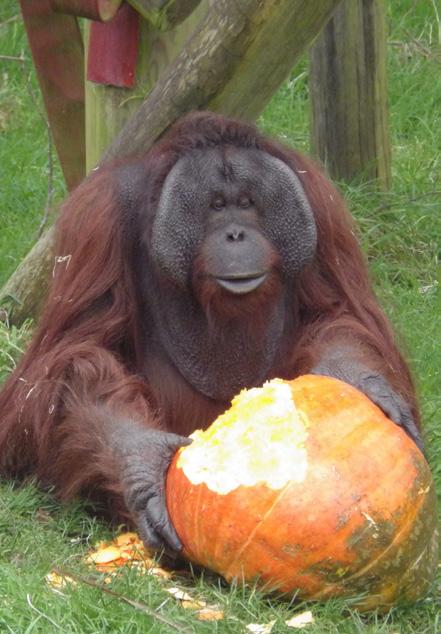
costumes. Ages 6+. mayflower.org.uk/whats-on/ disneys-aladdin-2024
Until 3 Nov
Animal Brass Rubbing at Exbury Gardens, SO45 1AZ
Grab your crayons and trail pack and set off on your Exbury adventure. exbury.co.uk
Sat 7 Sep
Heritage Open Day at Winchester City Museum, SO23 9ES
Enjoy FREE entrance as part of Historic Winchester’s Super Explorer event. 10am-5pm. historicwinchester.co.uk/citymuseum-winchester
Sat 7 & Sun 8 Sep
St Barbe Inspire Weekend at St Barbe Museum + Art Gallery, Lymington, SO41 9BH
There will be a full programme of activities throughout the weekend including live music, storytelling and children’s entertainment to add to the sparkle. 10am-4pm. FREE. stbarbe-museum.org.uk
Sat 7 Sep to Sat 30 Nov
Autumn is Wicked Trail at Sir Harold Hillier Gardens, SO51 0QA
Self-guided family fun trail. £2.50 per trail plus admission. 10am-5pm. hilliergardens.org.uk
Tue 10 Sep & Tue 29 Oct
Wildlife Tots at Swanwick Lakes, SO31 7AY
Indoor craft and story sessions for pre-schoolers and older siblings. hiwwt.org.uk/nature-reserves/ swanwick-lakes-nature-reserve
On 31 October, children in full halloween fancy dress will receive FREE entry to Monkey World! Best costume will receive a prize in the FREE fancy dress competition.
Throughout half-term children can learn all about our creatures of the night, the slow loris. As well as over 230 rescued monkeys and apes to see and three play areas, children can also take part in the fang-tastic trail and creepy crafts. www.monkeyworld.org
Wed 11 & Thu 12 Sep
FREE Heritage Open Days at The Brickworks Museum, Swanwick, SO31 7HB
FREE entry to celebrate Heritage Open Day. 11am-4pm. thebrickworksmuseum.org
Thu 12 Sep
FREE Heritage Open Day at Highcliffe Castle, BH23 4LE
FREE entry to celebrate Heritage Open Day. 10am-4pm. www.highcliffecastle.co.uk
Fri 13 Sep to Fri 25 Oct
Forest School Programme at Swanwick Lakes, SO31 7AY
A seven week introduction to Forest School programme, allowing your child to explore, discover, create and learn in the woods. Ages 2-5. hiwwt.org.uk/nature-reserves/ swanwick-lakes-nature-reserve
Sat 14 Sep
FREE Heritage Open Day at The Vyne, Basingstoke RG24 9HL
Explore a former Tudor powerhouse turned 17th-century family home, set in gardens, woodlands and wetlands. FREE . 10am-5pm. nationaltrust.org.uk/thevyne
Sat 14 Sep
Steamship Shieldhall Heritage Open Day Cruise, SO15 0HH Shieldhall Southampton Docks Cruise to mark Heritage Open Days. Between 10am–2.30pm Shieldhall will be open for FREE. 4-6pm. Book online. ss-shieldhall.co.uk/bookings
Sat 14 Sep
Little Pickles Market at Salvation Army Centre, SO30 2GL 0-5 years baby and children’s nearly new market. Buy clothes, toys, baby equipment and more. 2-3.30pm. Book a seller space online. littlepicklesmarkets.co.uk/ hampshire
Sat 14 & Sun 15 Sep
FREE Heritage Open Day at Winchester City Mill, SO23 9BH
FREE entry to celebrate Heritage Open Day. 10am-5pm. nationaltrust.org.uk/winchester citymill
Sat 14 & Sun 15 Sep
The Very Hungry Caterpillar Show at Theatre Royal Winchester, SO23 8SB
The production faithfully adapts four stories by author and illustrator Eric Carle. Ages 1-6. theatreroyalwinchester.co.uk
Sun 15 Sep
Little Pickles Market at Totton Health & Leisure, SO40 3GX 0-5 years baby and children’s nearly new market. Buy clothes, toys, baby equipment and more. 2-3.30pm. Book a seller space online. littlepicklesmarkets.co.uk/ hampshire
Sun 15 Sep
Steamship Shieldhall Boat Show Crusie, SO15 0HH Cruise on Shieldhall and explore Southampton Docks, passing the Boat Show, before steaming to The Solent. 2.30-6pm. ss-shieldhall.co.uk/bookings
Sun 22 Sep
Trainmaster at Woodland Community Centre, Eastleigh, SO50 8DH
Train lovers come and visit for an hour of play. See online for details. trainmaster.co.uk
Fri 27 Sep to Sun 29 Sep
Bournemouth Arts by the Sea Festival Arts by the Sea brings together large-scale spectaculars, diverse music, intriguing installations, dance, street theatre, participatory experiences and much more. artsbythesea.co.uk
Sat 28 Sep
Mini Monet at Southampton City Art Gallery, SO14 7LY Experiment with different art styles, techniques and materials in a fun and accessible way. £7.50 Pre-book. 10am. Under 7s. southamptoncityartgallery.com
Sun 29 Sep
Little Pickles Market at Applemore Health & Leisure Centre, SO45 5TN
0-5 years baby and children’s nearly new market. Buy clothes, toys, baby equipment and more. 2-3.30pm. littlepicklesmarkets.co.uk/ hampshire
Sat 5 Oct
Comedy Club 4 Kids at The Berry Theatre, Southampton, SO30 4EJ Cracking entertainment for everyone. The best comedians from the UK and world circuit doing what they do best… but without the rude bits! £10-£12. Ages 6+. theberrytheatre.co.uk
Sat 5 & Sun 6 Oct
Peppa Pig’s Fun Day Out at Theatre Royal Winchester, SO23 8SB
Join Peppa with her family and friends as they go to the zoo and the beach for a special party. This show will be packed full of singing, dancing and muddy puddles. theatreroyalwinchester.co.uk
Sun 6 Oct
BIGGER Pickles Market at Totton Health & Leisure, SO40 3GX
3 years to teenage nearly new market. Buy clothes, school uniform, books, games, gadgets and more. 2-3.30pm. Book a space online. littlepicklesmarkets.co.uk/ hampshire
Sat 12 Oct to Mon 4 Nov
Science Spooktacular at Winchester Science Centre, SO21 1HZ
Join Skully the skeleton for a fiendishly fun trick or treat trail around the Science Centre. Help reunite them with their lost bones and put them back together again. Enjoy a monster mini disco, live science shows a trick or treat trail and more. 9.30am-5pm. winchestersciencecentre.org
Sat 12 Oct to Mon 4 Nov
Gourd-geous Pumpkin Displays at Hinton Ampner, SO24 0LA
Jump in to autumn with a splash of colour and marvel at our beautiful pumpkin displays around the grounds. Discover over 200 pumpkins! 10am-5pm. nationaltrust.org.uk/hinton-ampner
Sun 13 Oct
Toot! at Turner Sims, University of Southampton, SO17 1BJ
Join the Toot! Ensemble for a fun family concert filled with warmth, excitement and magic. Ages 7-11 and their families. £5. Call 02380 595151 to book. 2pm. turnersims.co.uk/events/toot
Sat 19 Oct
BIGGER Pickles Market at Salvation Army Centre, Hedge End, SO30 2GL
Buy clothes, school uniform, books, games, gadgets and more. 2-3.30pm. Book a seller space online. littlepicklesmarkets.co.uk/ hampshire
Sat 19 to Mon 21 Oct
The Gruffalo at Theatre Royal Winchester, SO23 8SB
Join Mouse on a daring adventure through the deep, dark wood in Tall Stories’ magical, musical adaptation of the classic picture book. Ages 3+. theatreroyalwinchester.co.uk
Sat 19 to Thu 31 Oct
Halloween Potions Trail with Wilma the Witch at Hinton Ampner, SO24 0LA
If you’re looking for some frightfully good family fun this half term, then come and join Wilma the Witch on her potions trail. Hidden in the spookiest corners of Hinton Ampner’s gardens are the ingredients Wilma needs for her magic potion. You’ll need to race on your broomstick, toss a ring onto the witch’s hat, move your pet spider through the maze and more to complete the challenge and make the potion! 10am–5pm. nationaltrust.org.uk/hinton-ampner
Sun 20 Oct
After Dark – Science Explained: Spells and Potions at Winchester Science Centre, SO21 1HZ
Get set to be wowed by real magic and discover the science that can bring your favourite movie spells and storybook potions to life! Then sit back and relax as one of the most famous wizards of all time appears as if by magic on the Planetarium screen with an exclusive showing of Harry Potter and the Philosopher’s Stone. Adult £12.50, Child £9.50, Carers and under 3s FREE. winchestersciencecentre.org
Tue 22 to Sat 26 Oct
101 Dalmations at Mayflower Theatre Southampton, SO15 1GE
When fashionista Cruella de Vil plots to swipe all the Dalmatian puppies in town to create her fabulous new fur coat, there’s trouble ahead for Pongo and Perdi and their litter of adorable, tail-wagging young pups. Ages 3+. mayflower.org.uk/whats-on/101dalmatians-2024
Sat 26 & Sun 27 Oct
The Smartest Giant in Town at Theatre Royal Winchester, SO23 8SB
This heart-warming tale about friendship and helping those in need is brought to life in a musical,
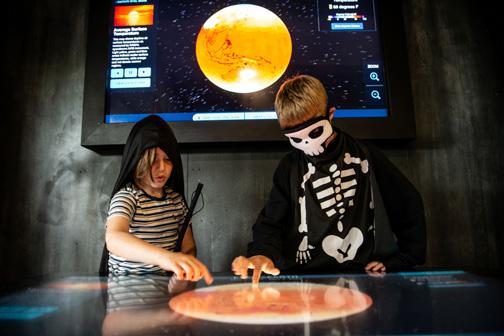
It’s trick or treat season and Winchester Science Centre is pulling out all the stops to fill this one with fiendish science fun!
Between Saturday 20 October and Monday 4 November, there’ll be all the usual Science Centre fun, plus even more to excite all ages at Science Spooktacular – and it’s all included with admission.
Families can swap spooky scares for frightful fun on the trick or treat trail. They’ll be wowed by epic chemistry demos in the brand new FREE live show, Potions Science Lab. And, little werewolves, witches and ghouls can show off their best moves on the dancefloor at the mini monster disco.
Visit winchestersciencecentre.org for more information and to book tickets.
puppet-filled adventure, following on from Little Angel Theatre’s bestselling adaptations of Julia Donaldson’s picture books. Ages 3+. theatreroyalwinchester.co.uk
Sun 27 Oct
Trainmaster at Woodland Community Centre, Eastleigh, SO50 8DH
Train lovers come and visit for an hour of play. Refreshments available. See online for details. trainmaster.co.uk
Sun 27 Oct
Autumn Steam Up at The Brickworks Museum, Swanwick, SO31 7HB
Autumn at the works celebrates the traditional changing of the seasons. The site will be decorated for Halloween, the traction engines will be on display and there will be stalls and spooky crafts in our genuinely haunted museum. 11am-4pm. thebrickworksmuseum.org
Sat 26 Oct to Sun 3 Nov
Halloween Pumpkin Trail at The Vyne, Basingstoke RG24 9HL
Celebrating The Vyne’s successfully conserved stained-glass windows, explore the ground-floor of the house and locate ten vibrant suncatchers featuring all kinds of mysterious and magical pumpkins. 10am–5pm. nationaltrust.org.uk/thevyne
Sun 27 Oct to Sun 3 Nov
Halloween Gruesome Garden Trail at Exbury Gardens, SO45 1AZ
A supernatural cargo of ghosts and ghouls arrived in their place, making their homes in the eerie woodlands surrounding the gardens. Most of the time there is nothing to fear at Exbury, but at Halloween the haunting begins! 10am-5pm. exbury.co.uk
Mon 28 & Tue 29 Oct
Wizard School at Tudor House & Garden, SO14 2AD
Visit Tudor House and create your very own magic wand, witness magic and search for the magical characters in the garden! Hourly sessions at 10.30am, 12pm, 1.30pm. £8. Ages 6+. tudorhouseandgarden.com
Mon 28 Oct to Sun 3 Nov
Halloween Ghost Train at Exbury Gardens, SO45 1AZ Tickets on sale now. exbury.co.uk
Mon 28 Oct to Sun 3 Nov
Halloween Pumpkin Carving at Exbury Gardens, SO45 1AZ
It just wouldn’t be Halloween without a spooky pumpkin - make yours at Exbury. 11am-4pm. exbury.co.uk
Wed 30 & Thu 31 Oct
The Brick People at The Brickworks Museum, Swanwick, SO31 7HB
A brilliant brick-based events using LEGO® bricks. 10am-4pm. thebrickworksmuseum.org
Thu 31 Oct
Halloween at Monkey World, BH20 6HH
FREE entry for children in full Halloween fancy dress. FREE fancy dress competition with prizes, as well as the activity centre to enjoy. monkeyworld.org
Thu 31 Oct & Fri 1 Nov
Art For All: Clay Pumpkins at Southampton City Art Gallery, SO14 7LY
Halloween isn’t Halloween without a clay pumpkin! Come along to learn new skills and have some fun at this classic family workshop. Ages 5+. southamptonmuseumsandgallery. co.uk
Please say you saw these listings in Families Hampshire West Magazine.
Thu 28 to Sat 30 Nov
English National Ballet Nutcracker at Mayflower Theatre, SO15 1GE
This festive season, join Clara on a fantastical adventure where anything is possible. Embark on a journey full of colour and wonder as English National Ballet brings the Nutcracker to life with over 100 dancers and musicians. From £12. Ages 5+. mayflower.org.uk/whats-on/enbnutcracker-2024


Email Rebecca for more information at editor@familieshampshirewest.co.uk
